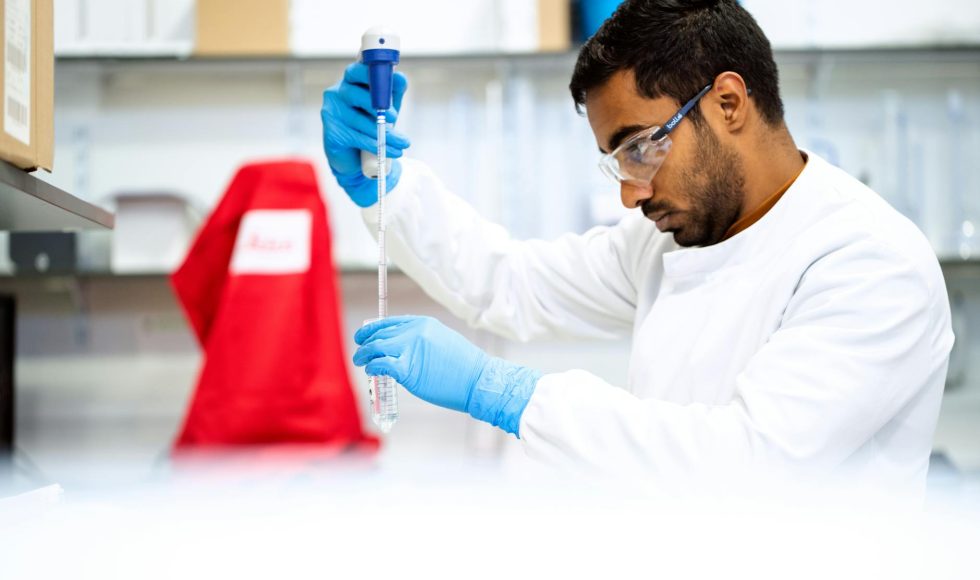Sophia Gibson from the University of Washington presented at London Calling 2024 on “Haplotype-resolved repeat expansions & methylation patterns in 1000 Genome Project data.” Gibson noted that clinical genetic testing typically requires multiple tests and clinic visits… and is diagnostic in fewer than 50% of cases. This is described as the “diagnostic odyssey.” Long-read sequencing […]
Tonight, I watched another series of London Calling 2024 studio interviews. Zoe McDougall spoke to three researchers. Carika Weldon from CarGenetics in Bermuda explained the healthcare research gaps. Heather Carleton from the Centers for Disease Control and Prevention explained how poop samples can be used to detect outbreaks… including the idea of mobile sampling with […]
The studio interviews at London Calling 2024 I watched tonight focused on clinical and translational applications. Zoe McDougall asked the three interviewees about the highlights of the updates talk. Ewan Birney director of EMBL-EBI in the UK spoke about the quality updates. Justin O’Sullivan from Liggins Institute at the University of Auckland in New Zealand […]
What a weekend! I am back from the NSF ENCOUR conference. I continued watching studio interviews from London Calling 2024. Tonight, the session I watched focused on pathogen surveillance and community and collaboration. Amanda Warr from The Roslin Institute spoke about learning to use Oxford Nanopore Technologies (ONT) with metagenomic samples and troubleshooting in the […]
Dan Turner from Oxford Nanopore Technologies presented at London Calling 2019 on “The real Simon Pure.” I was intrigued by the title and wanted to learn more. Turner is part of the ONT Applications Team and explained the different groups represented, including the VolTRAX2 team. The real Simon Pure title, Turner explained, is from a […]
Chris T.L. Chan from the Hong Kong Sanitorium & Hospital in China spoke at London Calling 2019 on “Long-read NGS guided preimplantation genetic testing for chromosomal structural rearrangement.” Chan presented a clinical scenario. They explained that short-read sequencing allowed the analysis of copy number variation from blood samples. Loss of copy can be identified with […]
Andrea Riposati from Dante Labs in the US presented at London Calling 2019 on “Human long-read whole genome sequencing: applications and results.” Riposati is the co-founder and CEO of Dante Labs. They presented a case of a patient who had suffered 45 years without a diagnosis. Dante Labs provided whole genome sequencing and pharmacogenomics lab. […]
Daniel P. Depledge from New York University presented at London Calling 2019 on “Redefining the transcriptional complexity of viral pathogens using direct RNA sequencing.” Depledge started with a slide and the question: Got herpes? They are fascinated with herpes viruses and their multiple features and applications. Herpes simplex virus type 1 (HSV-1) is a 152 […]
Mark T.W. Ebbert from the Mayo Clinic presented at London Calling 2019 on “Long-read sequencing technologies resolve most ‘dark’ and ‘camouflaged’ gene regions.”Dark and camouflaged regions? Ebbert explained that regions can be dark because there are no reads available (“dark by depth“) or dark by low sequence quality (“dark by MAPQ“). Ebbert explained that most […]
Anika Kinkhabwala, a Genomics Manager with EpiBiome, presented at the 2017 Nanopore Community Meeting on “Understanding phage-bacterial host interactions for smarter therapeutics.” They spoke about the trends of antimicrobial resistance. EpiBiome is working with phages. Kinkhabwala noted that phages are very specific and recognize cells. Phage research has been happening since the 1920s. EpiBiome uses […]










